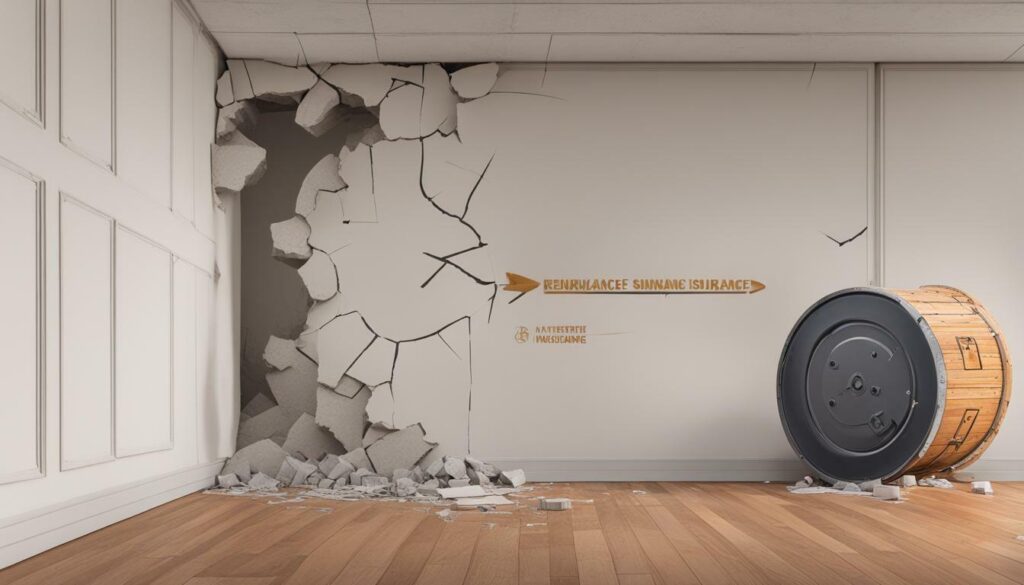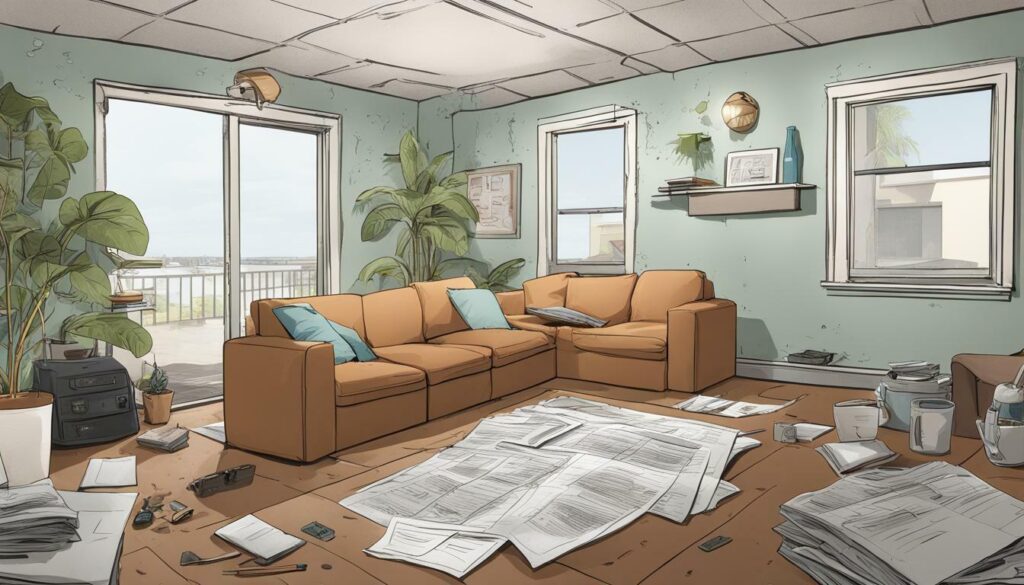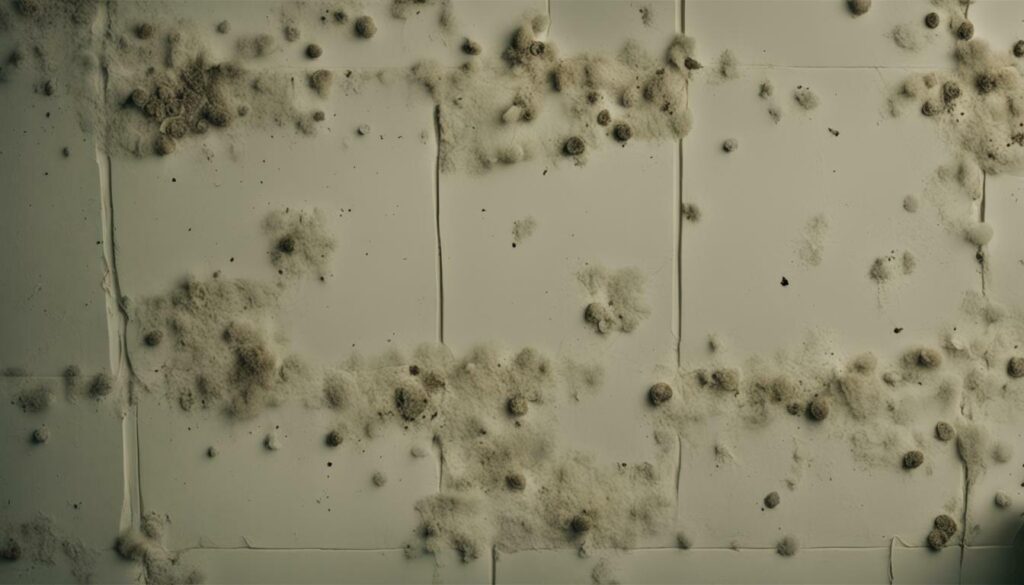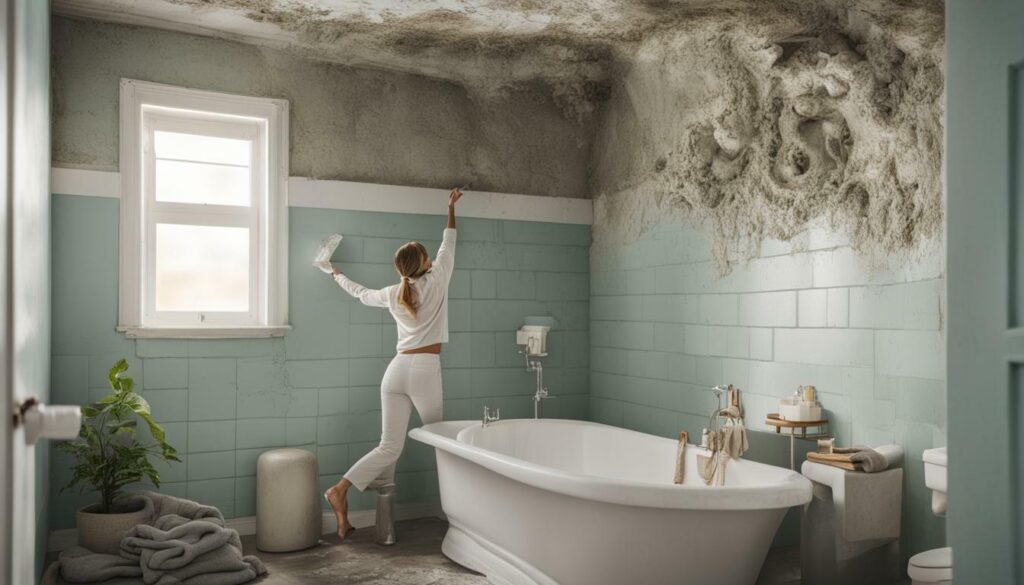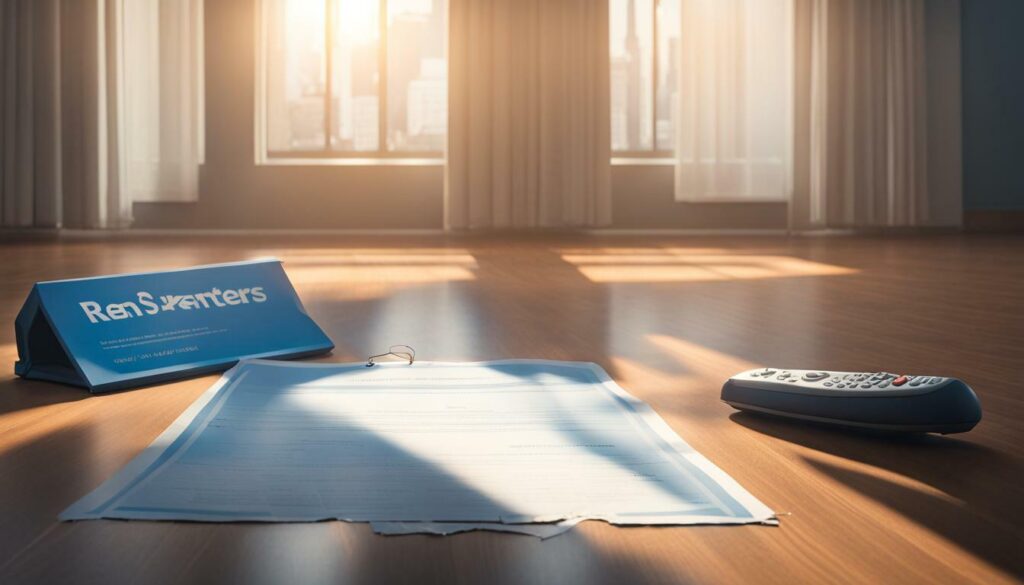As a renter, you want to protect your belongings and your space from unexpected damages. When a hole appears in your wall, you may wonder if renters insurance covers the repair costs. In this section, we will explore whether or not renters insurance covers holes in the wall. We will discuss the different aspects of renters insurance and how it relates to wall damage.
Key Takeaways:
- Renters insurance may or may not cover holes in the wall, depending on the specific terms and conditions of your policy.
- Understanding the different types of property damage covered by renters insurance can help you determine if wall holes fall under these covered damages.
- It is important to be aware of any limitations or exclusions that may apply to coverage for wall holes.
Understanding Renters Insurance Coverage
As a renter, it’s essential to have renters insurance to protect your personal belongings and provide liability coverage in case of accidents and damages. But what about property damage, such as holes in the wall? Does renters insurance cover wall damage?
Typically, renters insurance provides coverage for property damage caused by covered perils, such as fire, theft, vandalism, or natural disasters. This coverage can extend to include damage to the walls of your rental unit.
However, it’s important to note that not all renters insurance policies are created equal. Coverage terms and limits can vary widely depending on the policy you choose. Some policies may exclude coverage for specific types of property damage or have a limit on the amount of coverage provided.
Before purchasing renters insurance, it’s important to read the terms and conditions carefully to understand what is and isn’t covered. Make sure you ask your insurance provider about coverage for wall damage and any limitations or exclusions that may apply.
In addition, it’s important to document any pre-existing damage to the walls or other parts of your rental unit before purchasing renters insurance. This can help you avoid claims disputes and ensure that you receive adequate coverage for any future damage that occurs.


Types of Property Damage Covered by Renters Insurance
When it comes to renters insurance, there are several types of property damage that are typically covered. These include:
- Fire and smoke damage
- Water damage from burst pipes or leaking appliances
- Theft or vandalism
- Damage from natural disasters
But what about holes in the wall? In some cases, renters insurance may cover this type of damage as well. If the hole is the result of a covered peril, such as a fire or water damage, then your policy may provide coverage for the repairs.
However, it’s important to keep in mind that not all types of wall damage will be covered by renters insurance. For instance, if the hole was caused by your own negligence or intentional actions, then coverage may be denied.
Additionally, the amount of coverage you have for wall damage may vary depending on your policy. Be sure to review the terms and conditions of your policy carefully to understand your coverage limits for this type of damage.
In the next section, we will explore the factors that can impact your coverage for wall holes and discuss how landlords may come into play.
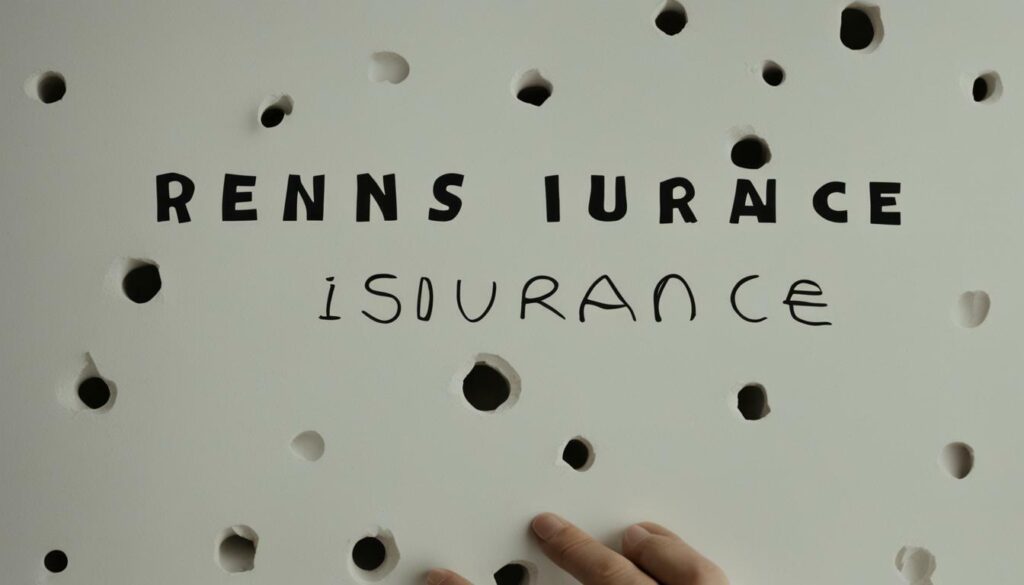

Wall Holes and Landlord Responsibility
When it comes to wall holes, the question of responsibility often arises. As a renter, you may be wondering if it is your responsibility to repair any holes in the wall, or if your landlord should handle it.
The answer to this question typically depends on the specific circumstances surrounding the wall damage. In general, if the damage was caused by the tenant’s negligence or misuse, it is likely the tenant’s responsibility to repair it. On the other hand, if the damage was caused by normal wear and tear, it is typically the landlord’s responsibility to repair it.
In some cases, determining responsibility can be more complicated. For example, if the damage was caused by a third party, such as a contractor or neighbor, it may not be clear who is responsible for the repair. If you are unsure who is responsible for repairing a hole in the wall, it is best to consult with your landlord.
Keep in mind that your renters insurance policy may also come into play when it comes to wall holes and repairs. While renters insurance typically does not cover damage caused by the tenant’s negligence, it may cover damage caused by events outside of the tenant’s control, such as a storm or break-in. If you have renters insurance, it is important to read your policy carefully to understand the specific terms and conditions related to wall damage coverage.
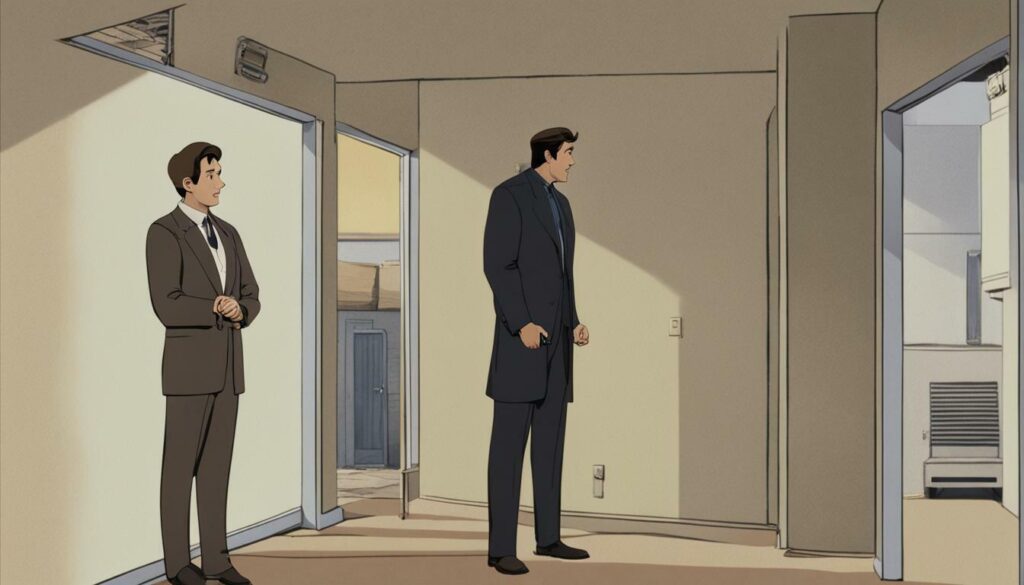

If you believe that your landlord is responsible for repairing a hole in the wall, it is important to communicate with them in a respectful and professional manner. Provide them with any necessary documentation, such as photos of the damage, and request that they schedule repairs as soon as possible. In some cases, your landlord may agree to cover the cost of repairs even if they are not legally required to do so.
Wall Holes and Landlord Responsibility with Renters Insurance
If you are unsure whether or not your renters insurance policy covers wall holes, it is important to review your policy language or speak with your insurance provider. In some cases, renters insurance may cover wall hole repairs, but there may be limitations or exclusions that apply. For example, your policy may only cover repair costs up to a certain amount or may require that repairs be completed by a professional.
It is also important to note that making a claim for wall hole damage with your renters insurance may impact your future premiums. Depending on the specific terms of your policy, making multiple claims for wall damage may cause your premiums to increase or may result in non-renewal of your policy.
Ultimately, the responsibility for repairing wall holes will depend on a variety of factors, including the cause of the damage and the terms of your renters insurance policy. If you have any questions or concerns regarding wall hole repairs, it is best to consult with your landlord and/or insurance provider.
Factors that Determine Coverage for Wall Holes
So, does renters insurance cover wall repairs? The answer is not always straightforward and can depend on several factors.
Firstly, it is important to read your policy carefully to determine whether or not wall damage is covered. Some policies may explicitly list wall damage as a covered peril, while others may not mention it at all.
Additionally, the cause of the wall damage can impact coverage. For example, if the damage was caused by a covered peril such as theft or vandalism, it may be covered. However, if the damage was caused by wear and tear or neglect, it may not be covered.
Another factor to consider is your policy’s deductible. This is the amount you will need to pay out of pocket before your insurance coverage kicks in. If the cost of repairs is less than your deductible, filing a claim may not be worth it.
Finally, it’s important to be aware of any coverage limits for wall damage. Your policy may cap the amount of coverage available for certain types of damage, including wall holes. Be sure to review your policy carefully to understand any limitations or exclusions that may apply.
Overall, whether or not renters insurance covers wall holes can depend on several factors. Be sure to read your policy carefully and consult with your insurance provider if you have any questions or concerns.
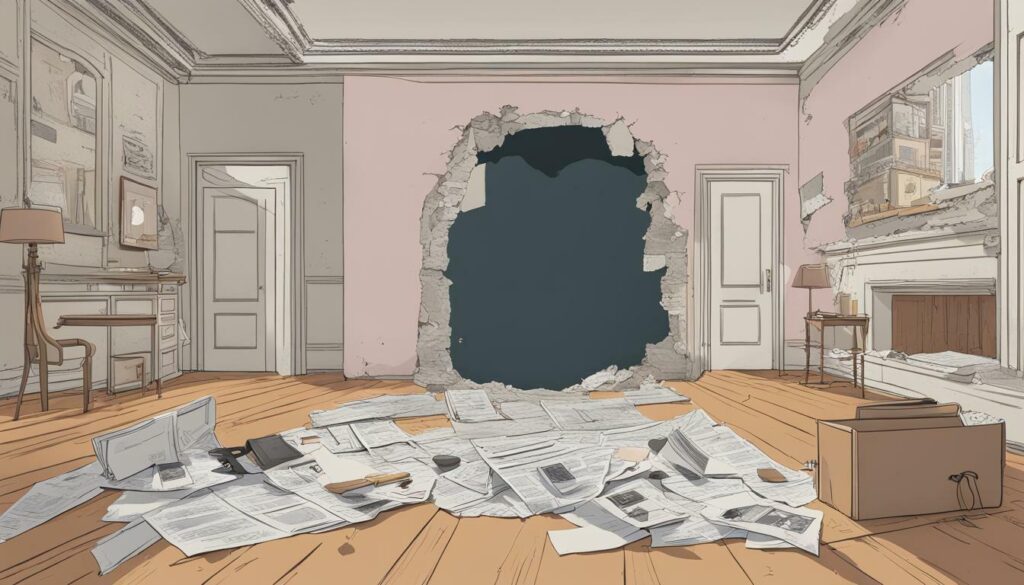

Making a Claim for Wall Hole Damage
If you experience wall hole damage in your rental unit, it is important to understand how to make a claim with your renters insurance provider. The first step is to review your policy and determine if the damage is covered. If you are unsure, contact your insurance provider to clarify.
Once you have confirmed coverage, document the damage by taking photos or videos. This will help to support your claim and provide evidence of the damage. You may also need to provide a written description of the damage and how it occurred.
Next, contact your renters insurance provider and report the damage. They will guide you through the claims process, which typically involves completing a claims form and providing supporting documentation. Your provider may also send an adjuster to assess the damage and determine the amount of compensation you are eligible for.
It is important to keep in mind that renters insurance policies often have deductibles, which means that you may need to pay a certain amount out-of-pocket before your coverage kicks in. Be sure to review your policy to understand your deductible amounts and any other limitations or exclusions that may apply to wall damage coverage.
Overall, making a claim for wall hole damage with your renters insurance provider can help to cover the costs of repairs and minimize financial stress. Just be sure to document the damage, understand your policy terms, and follow the proper claims process to ensure a smooth and successful outcome.
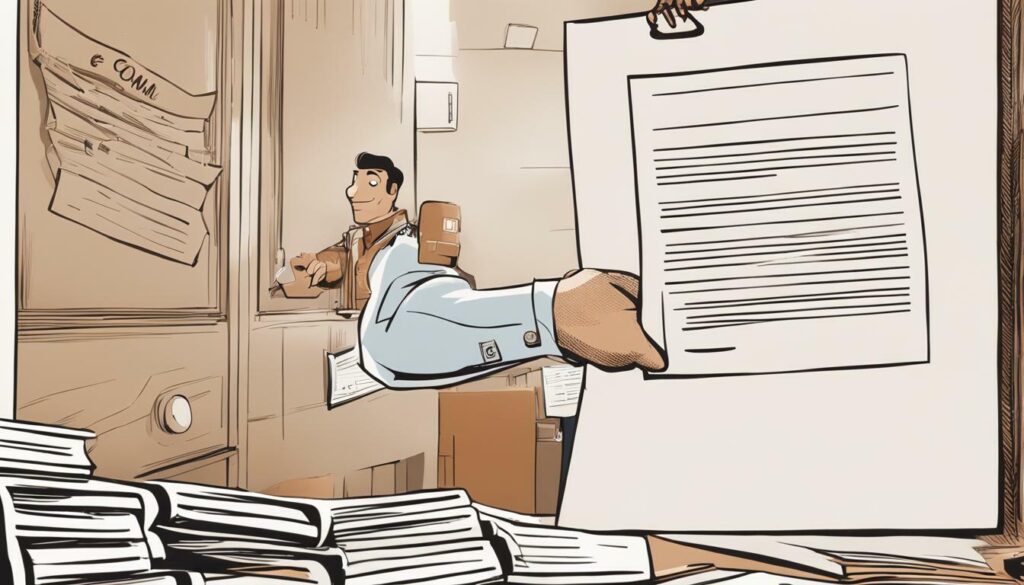

Coverage Limitations for Wall Holes
While renters insurance may cover holes in the wall, it is important to understand that there may be limitations or exclusions to this coverage. For example, if the damage is intentional or a result of illegal activity, it may not be covered by your policy.
Additionally, some policies may have a limit on the amount of coverage provided for wall damage. You should review your policy carefully to determine whether or not there are any coverage limitations on holes in the wall.
Another factor that may impact coverage for wall holes is the cause of the damage. If the damage is caused by a natural disaster or another covered event, it may be more likely to be covered by your insurance. However, if the cause of the damage is related to poor maintenance or neglect on your part, it may not be covered.
It is important to remember that every renters insurance policy is different, and coverage for wall holes may vary depending on your specific policy. If you have any questions or concerns about your coverage, be sure to contact your insurance provider for clarification.
Remember, prevention is key when it comes to minimizing the risk of wall holes and other types of damage. By maintaining your rental property and taking proactive measures to prevent damage, you can reduce the likelihood of needing to make a claim on your renters insurance policy.
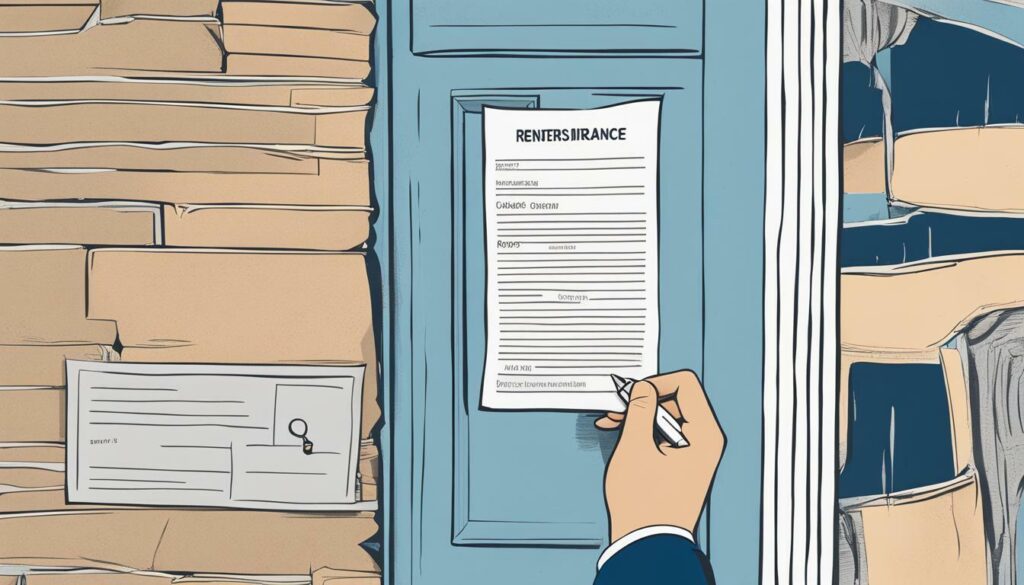

Additional Coverage Options
While renters insurance may provide coverage for wall damage, including holes, some policies may have limitations or exclusions. For that reason, it may be beneficial to explore additional coverage options that can complement your existing policy and give you extra protection.
One option to consider is adding an endorsement to your renters insurance policy. An endorsement is a type of add-on coverage that can be tailored to your specific needs. For example, you may be able to find an endorsement that specifically covers wall damage, including holes.
Another option to consider is purchasing a separate liability insurance policy. Liability insurance can provide coverage if you accidentally cause damage to someone else’s property, including the walls of the rental unit. This can give you peace of mind knowing that you are covered in the event of an accident.
When considering additional coverage options, it is important to consult with your insurance provider to determine what options may be available to you and what makes the most sense for your specific situation.
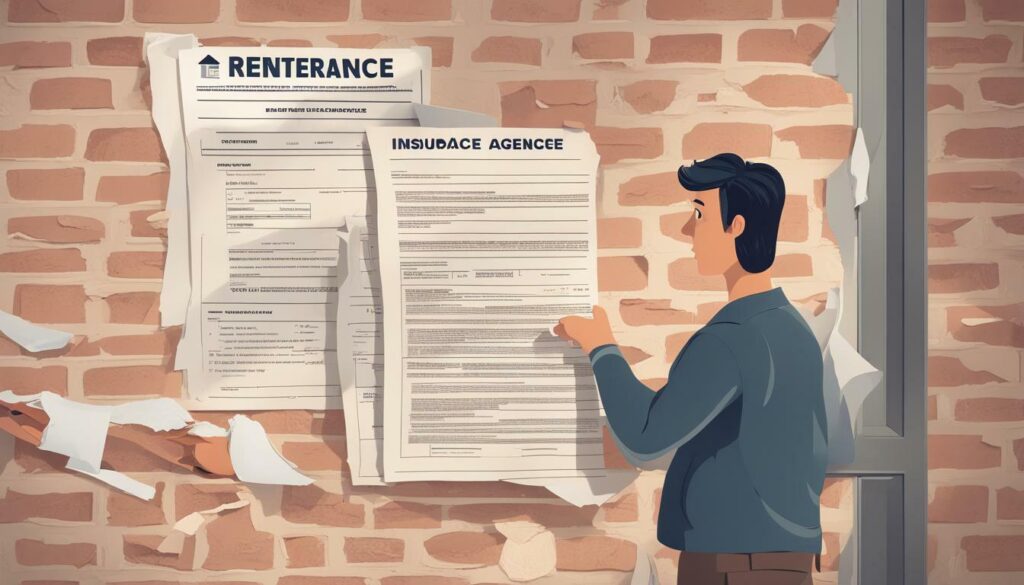

Preventing Wall Holes and Damage
While renters insurance can provide coverage for wall holes, prevention is always better than cure. By following a few simple steps, you can minimize the risk of damage to your rental property and ultimately prevent the need for costly repairs.
Hang Wall Decorations Responsibly
Before hanging anything on the walls, make sure you are using appropriate hardware and following the manufacturer’s instructions. Avoid using nails or screws that are too large, as they can cause extensive damage to the drywall. Instead, use small picture hangers or adhesive hooks that won’t leave large holes if removed properly.
Be Mindful of Furniture Placement
When moving furniture around, be careful not to scrape or bang it against the walls. Even a small dent or scratch can eventually lead to a hole. Use furniture pads or felt strips to prevent damage to the walls when moving furniture.
Report Any Issues to Your Landlord
If you notice any cracks or holes in the walls, report them to your landlord right away. They may be able to fix the issue before it becomes a more significant problem. Additionally, reporting damage promptly can protect you from any liability if the issue worsens over time.
Use Caution When Doing DIY Repairs
While fixing holes in the wall yourself may seem like a cost-effective solution, it can actually make the problem worse if not done correctly. If you are not experienced with DIY repairs, consider hiring a professional to ensure the job is done properly and to prevent any damage to the walls.
Maintain a Safe Living Environment
Avoid engaging in activities that could put undue stress on the walls. For example, avoid throwing objects, playing sports indoors, or using the walls as support when moving heavy furniture. By taking care of your rental property, you can prevent wall holes and any other related issues.
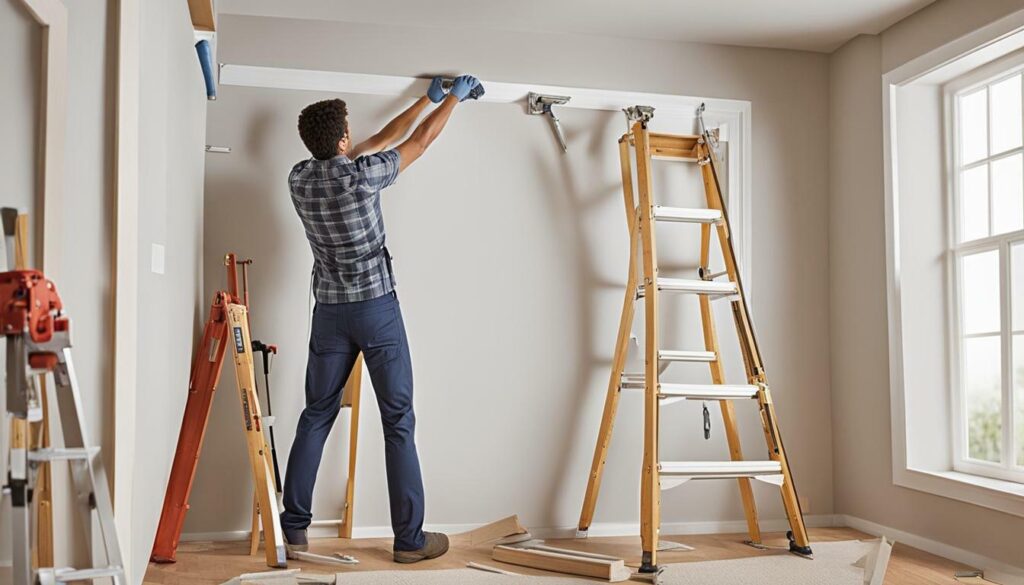

Understanding Your Policy Language
When it comes to determining whether renters insurance covers holes in the wall, it’s important to understand the specific language used in your policy. Often, insurance policies will use terms such as “accidental damage” or “sudden and unexpected” events to describe covered damages.
It’s important to note that not all policies will cover wall holes as they may be considered cosmetic or normal wear and tear. However, some policies may cover holes in the wall if they are caused by a covered event, such as a fire or a burst pipe.
To ensure that you have the appropriate coverage for wall holes, it’s crucial to carefully read and understand your policy’s language. If you’re unsure about any terms or conditions, don’t hesitate to reach out to your insurance provider for clarification.
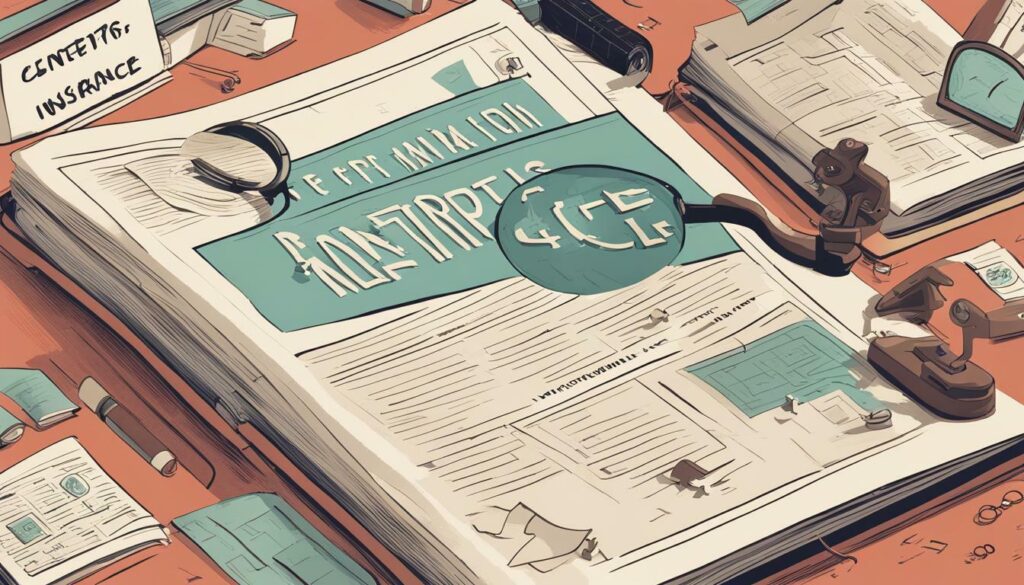

Tip: When reviewing your policy, pay close attention to any exclusions or limitations related to wall damage. These may impact your coverage for holes in the wall.
Importance of Professional Repairs
If you have holes in your walls, it’s crucial to hire a professional to properly repair them. Attempting to fix the holes yourself may seem like an easy and cost-effective solution, but it can actually have negative consequences.
DIY wall repairs can potentially void your renters insurance coverage. If the repairs are not done correctly and the holes reappear, the insurance company may refuse to cover any subsequent damage or repairs.
Additionally, if you are not experienced in repairing walls, you may cause further damage to the wall or even injure yourself in the process. It’s always better to leave this type of repair work to a professional who has the skills and experience needed.
Choosing a reputable and qualified repair service can also help you avoid additional costs and headaches down the line. They will be able to provide a long-lasting solution to your wall hole problem, ensuring that you don’t have to deal with the issue again anytime soon.
When hiring a professional for wall repairs, be sure to ask for references and check their licenses and insurance coverage. You want to ensure that you are hiring someone who is qualified, experienced, and insured.
By hiring a professional for your wall repairs, you can ensure that your home remains in good condition and that you are covered by your renters insurance policy.
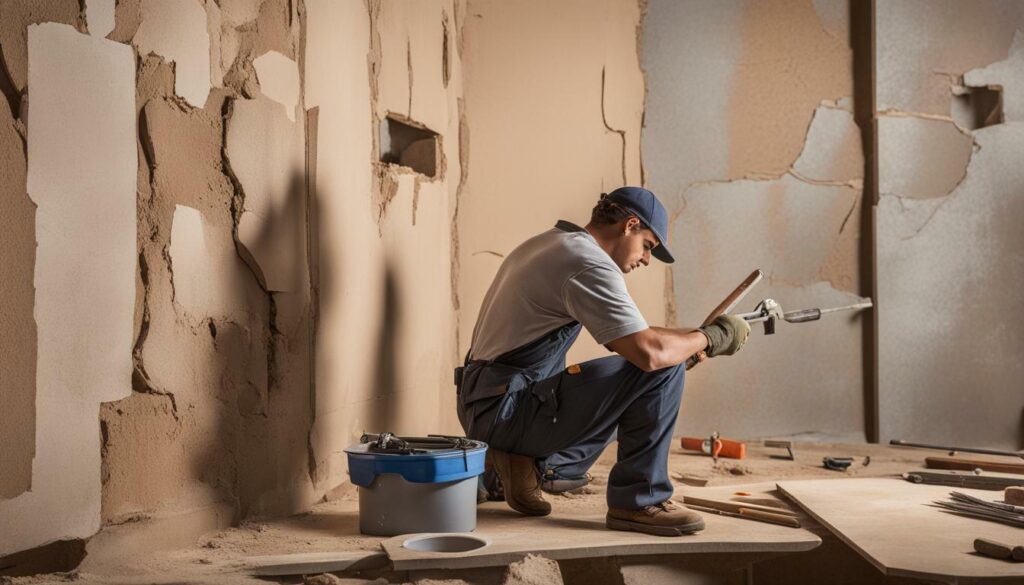

Conclusion
If you’re a renter wondering whether or not your insurance policy covers holes in the wall, the answer isn’t straightforward. It ultimately depends on the specific terms and conditions of your policy. To ensure you have the appropriate coverage, it’s important to review your policy carefully and understand any limitations or exclusions that may apply to wall damage.
If you’re unsure about what your policy covers, don’t hesitate to reach out to your insurance provider for clarification. They can help you understand the language in your policy and determine if you need additional coverage options.
Keep in mind that it’s important to take preventative measures to minimize the risk of holes in the wall. And, if you do experience wall damage, it’s best to have a professional repair it to ensure it’s done correctly. By following these tips and guidelines, you can help protect your rental and ensure you have adequate coverage in case of any wall damage.
FAQ
Q: Does renters insurance cover holes in the wall?
A: Renters insurance may cover holes in the wall depending on the specific terms and conditions of your policy. It is important to review your policy carefully and understand any limitations or exclusions that may apply to wall damage.
Q: What does renters insurance typically cover?
A: Renters insurance typically covers property damage, but whether or not this includes holes in the wall can vary. It is important to check your policy for specific coverage details.
Q: Are wall holes considered a type of property damage covered by renters insurance?
A: Wall holes may be considered a type of property damage covered by renters insurance, but it is best to check your policy for confirmation. There may be limitations or exceptions that apply.
Q: Is it the tenant’s or landlord’s responsibility to repair wall holes?
A: The responsibility for repairing wall holes can vary depending on the rental agreement and local laws. It is best to consult with your landlord to determine who is responsible for the repairs.
Q: What factors determine whether renters insurance covers wall holes?
A: The factors that determine coverage for wall holes can vary depending on the specific terms and conditions of your policy. It is important to read your policy carefully and understand the coverage details related to wall repairs.
Q: How do I make a claim for wall hole damage with my renters insurance?
A: To make a claim for wall hole damage with your renters insurance, you will need to follow the claims process outlined by your insurance provider. This typically involves providing documentation and evidence of the damages.
Q: Are there any limitations or exclusions that apply to coverage for wall holes?
A: Yes, there may be limitations or exclusions that apply to coverage for wall holes. Common scenarios where coverage may be limited include intentional damage or damage caused by pets. Review your policy for specific details.
Q: Are there additional coverage options for wall damage?
A: Yes, there may be additional coverage options available to renters who want extra protection for wall damage. These options can complement your existing renters insurance policy and provide additional coverage for specific risks.
Q: How can I prevent wall holes and damage?
A: To prevent wall holes and damage, it is important to take proactive measures such as using proper mounting techniques for hanging items, avoiding unnecessary drilling or nailing, and promptly reporting any damages to your landlord.
Q: What should I know about the language used in my renters insurance policy regarding wall holes?
A: It is important to understand the specific language used in your renters insurance policy regarding wall holes. This includes terms and phrases related to coverage, limitations, and exclusions. If you have any doubts or questions, consult with your insurance provider.
Q: Why is it important to hire a professional for wall hole repairs?
A: Hiring a professional for wall hole repairs is important to ensure that the repairs are done correctly and to prevent any potential issues with your renters insurance coverage. DIY repairs may not meet the requirements of your policy.

